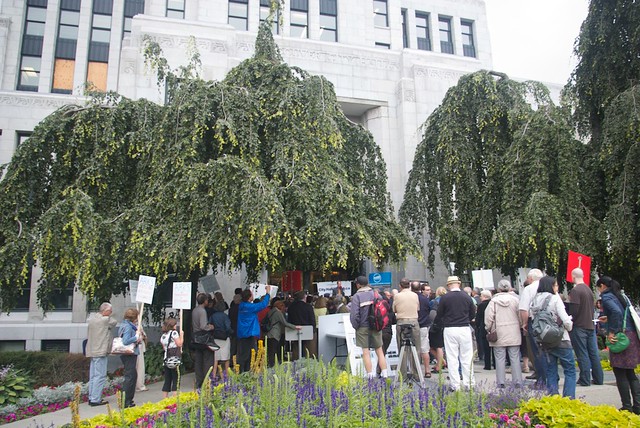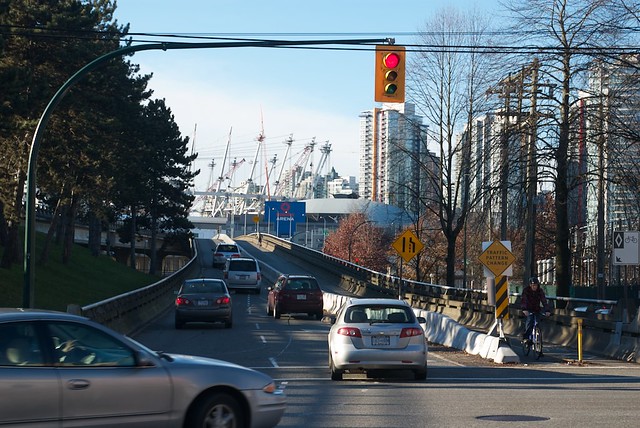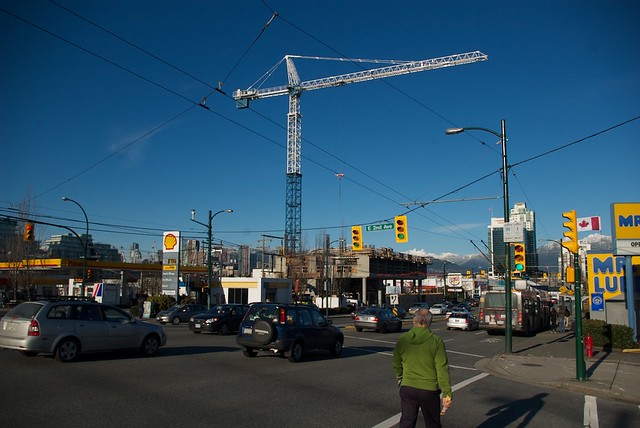I) Vancouver’s ‘Reserve Army’
For Vancouver’s unemployed and working poor, social and economic life is increasingly precarious. Ruled by a post-Fordist economy determined by risk-finance and the micropolitical strategies of the crisis-State — flexibilization, dispersion of workers, a developer-run city hall — Vancouver’s poor confront employment, health care and housing needs with greater peril and uncertainty. While in the post war period large segments of the labour force experienced relative stability, assured employment and a regulated working day under Fordist production, the last couple of decades in Vancouver have seen a deepening of precarity.
In the contemporary labour field, precarity is understood as a general lack of guaranteed contracts, stable schedules, and secure employment, in which working time and leisure time fuse together in a mystical union. The irreverent alliance between capital and the State has historically waged persistent, running battles with labour in order to cut ties with stability, welfare and support, and for the last thirty years the balance of forces has veered in favor of profit and crisis. Submerged in the present recession, traditional labor is only a small part of the productive system within a city like Vancouver, constituting an unsubstantial rate of profit and little technological development. As structural underemployment entrenches itself, finance calls the shots from a safe distance. In Vancouver and elsewhere, the security of Fordism appears no longer the norm, but rather the exception, while precarity becomes the standard experience of life and work as such.
Made up of a motley crew, Vancouver’s precariat is its “reserve army,” to use Marx’s term for the unemployed. Temporary unemployment, underemployment and unstable contracts have become a general regime of the economy as the flexible precariat becomes the general standard for the labour field. In Vancouver precarity has historically been associated within women’s and migrant’s work (domestic or otherwise), but has grafted onto a litany of identities: low-income workers, students, unemployed, sex workers, artists, migrants, other social identities, all forced to accept the scraps of the service industry or other forms of cheap labour. Without a guaranteed living wage or income, coupled with the rising cost of rent and wholesale goods, labourers take on two or three jobs, work in flexible industries, work on short-term contracts, solicit work for temp-agencies, and not least, rely on friends and family for assistance. All the while, they attempt to construct a life at a distance from exploitation by over-paying for education, plunging deep into debt, getting drunk, or worse, retreating within the calming shelter of a veiled commodity culture and its latest consumption trends.



